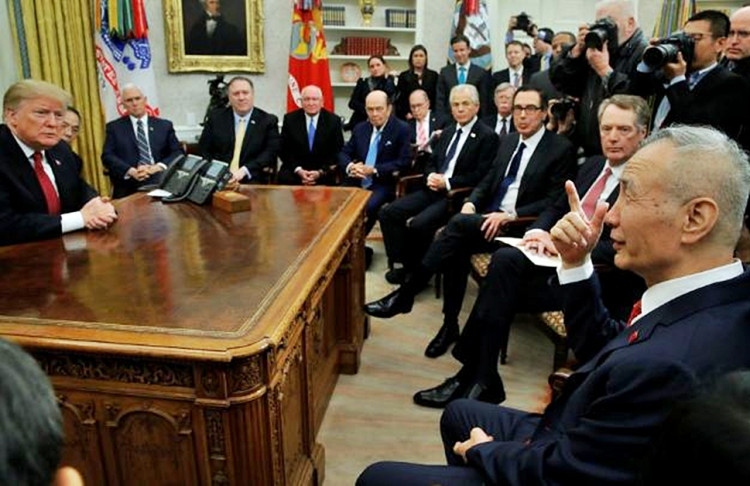After two days of talks to resolve Trump's trade war with China failed, Chinese president Xi Jinping has come out to say he'd be satisfied with a 50-50 compromise to end this ruinous rift.
Washington D.C. insiders admitted the two-day talks that ended yesterday aimed at avoiding the imposition of 25% tariffs on Chinese imports into the U.S. had made little progress. The positions of both sides remain where they've been from the start.
Political pundits noted the U.S. keeps demanding existential changes to China's political and economic structures, and these demands have been non-starters from the start of the negotiations.
Despite this dismaying result, both Washington and Beijing have issued statements praising the "progress" of the stalled talks.
Both Chinese and United States negotiators said they've made "important progress" in their latest round of trade talks, according to China's state-run media.
For his part, Trump said he'll soon meet Xi to try to secure a comprehensive deal between their countries. Washington said both sides held "candid, specific and fruitful" discussions during two days of high-level talks.
U.S. negotiators also reported "substantial progress" following the conclusion of the talks, which is at odds with the facts. Washington has gone to great lengths to diminish expectations the talks will result in a deal that will prevent the new U.S. tariffs from being imposed.
In a statement, the White House emphasized that the scheduled tariff increase on $200 billion worth of Chinese goods to 25 percent from 10 percent was a "hard deadline" if no deal was reached by March 1.
While the negotiations were ongoing, Xi sent Trump a letter in which the Chinese leader said he hopes both sides will be able to meet each other halfway. Xi also said he wants to reach a trade agreement before a March 1 deadline.
These revelations were made by Trump, who read from the letter to reporters during a White House meeting with Vice Premier Liu He. He is in Washington attempting to reach a deal that will ease trade tensions between his country and the USA.
A press statement released by the White House after the unsuccessful two-day talks said the negotiations discussed the ways in which United States companies are pressured to transfer technology to Chinese companies.
It also tackled the need for stronger protection and enforcement of intellectual property rights in China; and a need to end the numerous tariff and non-tariff barriers faced by United States companies in China, among others.
China and the U.S. also discussed the need to reduce the huge and growing trade deficit the United States has with China.
The White House did admit, however, that while "progress has been made, much work remains to be done," a clear indication the talks failed to achieve its main aim by the March 1 deadline. Supporting this dim view is a statement the United States "looks forward to furthering talks with China on these vital topics."






